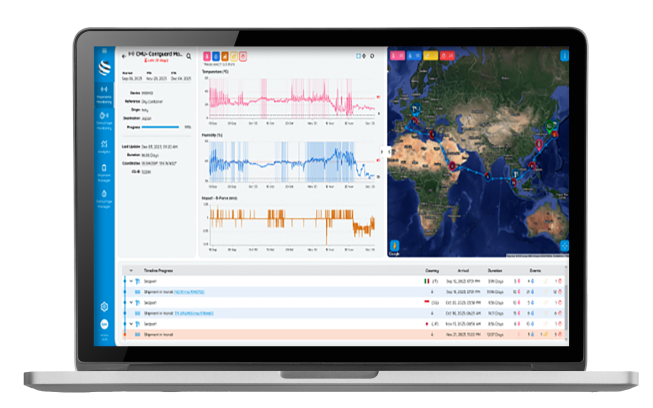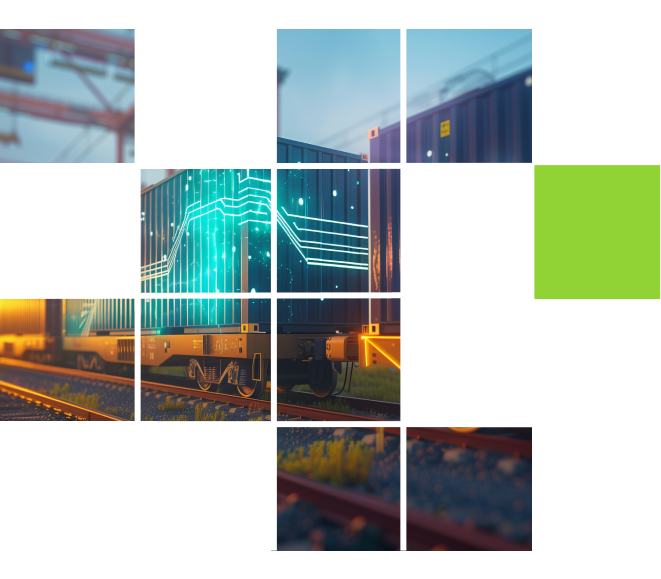Supply Chain Risk
Management
Contguard’s Supply Chain Risk
Management Solutions:
Safeguarding Your Cargo’s
Integrity is Our Mission
In an era where cargo theft inflicts a staggering $30 billion annual loss around the globe, prioritizing logistics risk management and safeguarding goods during transit has become more crucial than ever.
By leveraging Contguard’s innovative AI-based IoT and ML technology, businesses can significantly mitigate risks associated with cargo transport and ensure the security of their goods from origin to destination. Contguard’s comprehensive platform integrates cutting- edge technology to ensure your goods are not only secure, but also maintain their quality throughout their journey.


Supply Chain Security
Risk Mitigation and Theft Prevention
Contguard’s AI-based IoT supply chain risk management solutions are designed to address the vital need for safeguarding goods in transit, providing constant transparency over security parameters of your cargo throughout its entire route and mitigating logistics risk.
Empowered by a prime selection of IoT devices equipped with a range of sensors, including those detecting door openings and light penetration, Contguard guarantees comprehensive monitoring to protect your goods and ensure cargo security.

Contguard's security features include:
Theft
Prevention
Alerts
Stay updated with live real-time alerts on any unauthorized access or breach attempts, enabling immediate intervention to prevent theft.
24/7 Control
Center for
Cargo Security
Operated by dedicated experts who diligently monitor every shipment, promptly addressing any security threats. In the event of a potential security issue, our team contacts the client's designated point of contact without delay.
Geo-
Fencing
Custom virtual boundaries set around your cargo that trigger alerts if breached, providing an additional layer of security.
Route
deviation
alerts
Keep your shipments on the right path and avoid any unnecessary risks with Contguard’s real-time route deviation alerts.
Supply Chain Quality
Assurance
Maintaining the integrity of your cargo is paramount. Contguard’s supply chain risk management solutions ensure the consistent preservation of product quality from origin to destination. Uphold superior quality standards for your goods by utilizing Contguard’s state-of-the-art IoT devices, featuring sensors designed to monitor temperature, humidity, and detect impacts efficiently.

Receive immediate alerts regarding any quality-related issue:
Temperature
Monitoring
Instantly receive personalized alerts for any deviations from required temperature thresholds to maintain product quality.
Humidity
Control
Stay informed with tailored alerts for fluctuations in humidity that may affect your goods' integrity.
Impact
Detection
Receive prompt notifications for significant impacts that could compromise cargo condition.
Shelf-Life
Assurance
Monitoring conditions to ensure products arrive in optimal state, extending shelf life and reducing waste.


